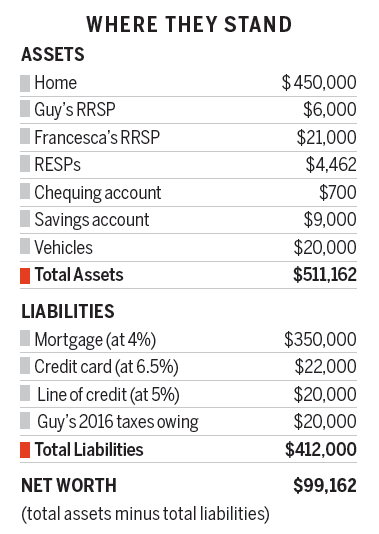One family’s strategy for killing debt
With $42,000 in personal debt plus $20,000 in back taxes to pay, the Nazarios need a plan
Advertisement
With $42,000 in personal debt plus $20,000 in back taxes to pay, the Nazarios need a plan

 Toronto financial planner Heather Franklin says the Nazarios have to take action now. “They need to focus on repaying their debt and can’t wait any longer.” Here’s what the Nazarios should do.
Toronto financial planner Heather Franklin says the Nazarios have to take action now. “They need to focus on repaying their debt and can’t wait any longer.” Here’s what the Nazarios should do.
Affiliate (monetized) links can sometimes result in a payment to MoneySense (owned by Ratehub Inc.), which helps our website stay free to our users. If a link has an asterisk (*) or is labelled as “Featured,” it is an affiliate link. If a link is labelled as “Sponsored,” it is a paid placement, which may or may not have an affiliate link. Our editorial content will never be influenced by these links. We are committed to looking at all available products in the market. Where a product ranks in our article, and whether or not it’s included in the first place, is never driven by compensation. For more details, read our MoneySense Monetization policy.
Share this article Share on Facebook Share on Twitter Share on Linkedin Share on Reddit Share on Email